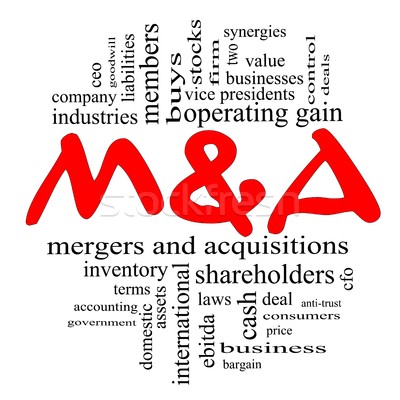Mergers & Acquisitions
Post on: 6 Июнь, 2015 No Comment

By Jack Lyons, Mergers & Acquisitions Advisor and Certified Exit Planning Advisor (CEPA)
When it comes to the topic of mergers & acquisitions, how many times have you heard another business owner talk about selling a business for five times, six times or whatever times earnings? Quite a few, I’d imagine. As merger & acquisition advisors, two of the questions that we often hear from prospective seller clients are “What is the market multiple?” and “Can I get the same multiple as someone else (either named or unnamed) got when I sell my business?”
The answer to the first question is that in a merger & acquisition transaction there is no one market multiple, because multiples vary by buyer, location, strength of the organization, business revenue and profitability direction, economic outlook, etc. This seems to be a hard concept for business owners to understand, but that’s the way it is, and we as acquisition advisors can give only an educated guess at a range of multiples that a particular company may bring when sold in a merger & acquisition transaction. Often, there is a difference of 50 percent between the lowest and highest offers received as a result of going through an M&A process. If we market a company and receive four offers, what is the market multiple? Is it the multiple that the lowest offer brings? Is it the multiple that the highest offer brings? Is it the average multiple? Or is it something else?
The answer to the second question depends on everything mentioned in the last paragraph, as well as how each party in the merger and acquisition defines earnings, deal structure, timing of the sale and a host of other factors. No matter what the final deal structure is, the M&A buyer always wants to know what the business is earning and will go to great lengths to verify this. But within mergers and acquisitions, what is the definition of “earnings”? It would seem that this is pretty simple on the surface, but in actuality there are several definitions of earnings. Each definition is potentially unlike the other, depending on the way an owner runs the company and the kind of company being reviewed. Typically, within mergers & acquisitions, earnings can be defined as:
- Gross profit margin, gross profit or gross margin. This is what you get when you subtract cost of sales/cost of goods sold from revenue/net sales. To be calculated properly, all costs associated with producing revenue should be included. Companies have different methods of calculating this level of profitability if costs associated with revenue production are classified elsewhere.
- Net operating income. This is what you get when you subtract cost of sales/cost of goods sold and operating expenses/selling, general and administrative expenses from revenue/net sales.
- Pretax income. This is net operating income plus interest expense. This would be the business income that you’d report on your tax return if you have either an S corp or an LLC, unless you had some nondeductible expenses that would be treated as income to you.
- Adjusted pretax income. This is pretax income less one-time nonrecurring expenses.
- After-tax income. This is pretax income less any company income taxes if you have a C corp.
- EBIT. This means earnings before interest and taxes.
- EBITDA. This is earnings before interest, taxes, depreciation and amortization.
- Adjusted EBITDA. This is EBITDA adjusted for excess expenses such as excess owner compensation and expenses that would not be passed on to the M&A buyer after the company is sold. The computation of adjusted EBITDA is one of the most controversial items to be dealt with in an acquisition if pricing is based on adjusted EBITDA. The seller always wants this to be the maximum amount possible, and the M&A buyer many times has another idea of what the adjusted EBITDA should be.

There is one other measure of earnings:
- Owner’s discretionary earnings, owner’s discretionary cash flow or true cash flow. This is the total amount of earnings for the company and includes all profits; the owner’s salary, bonuses, distributions and expenses; and rental expense in excess of fair market value for the building or equipment used in the business. This is a measurement of the total earnings of the corporation that are available to the owner to do with as he/she pleases and is the most accurate indicator of how much cash a company produces. Like adjusted EBITDA, it is subject to audit, controversy and negotiation.
Can you see how difficult it is to answer an owner when he/she asks, “What multiple can I get for my business?” There just isn’t a right or wrong answer to this question. In some cases, especially where a business has a high book value, an M&A buyer will buy the assets of the business regardless of whether the business is making substantial earnings. In the case of a service business with few assets other than accounts receivable, the purchase price will be more earnings dependent. In this case, we rely on our mergers & acquisitions experience to determine the range for a reasonable purchase price, taking into consideration many factors other than a company’s earnings. These factors include the quality of the staff, dependency upon the owner, customer concentration, specialty, growth prospects, quality of accounts receivable, bad debt history, the ability to obtain financing for the transaction, what is happening to the valuation of public and private companies in the industry, the availability of other investment opportunities in the mergers & acquisitions market, what we think is appropriate based on our knowledge of the company and the M&A market, whom we think the buyers for the company will be, etc. To an M&A buyer, factors other than the company’s earnings become as or more important than earnings when the M&A buyer is evaluating a company.
So, going back to our most common merger & acquisition questions: “What is the market multiple?” and “Can I get the same multiple as someone else (either named or unnamed) got when I sell my business?” The real answer to both questions is “It depends.”
Jack Lyons is a Mergers & Acquisitions Advisor, a Certified Exit Planning Advisor (CEPA) and president of Lyons Solutions, LLC. He can be reached at 203-642-4141 or at jlyons@lyonssolutions.com .














